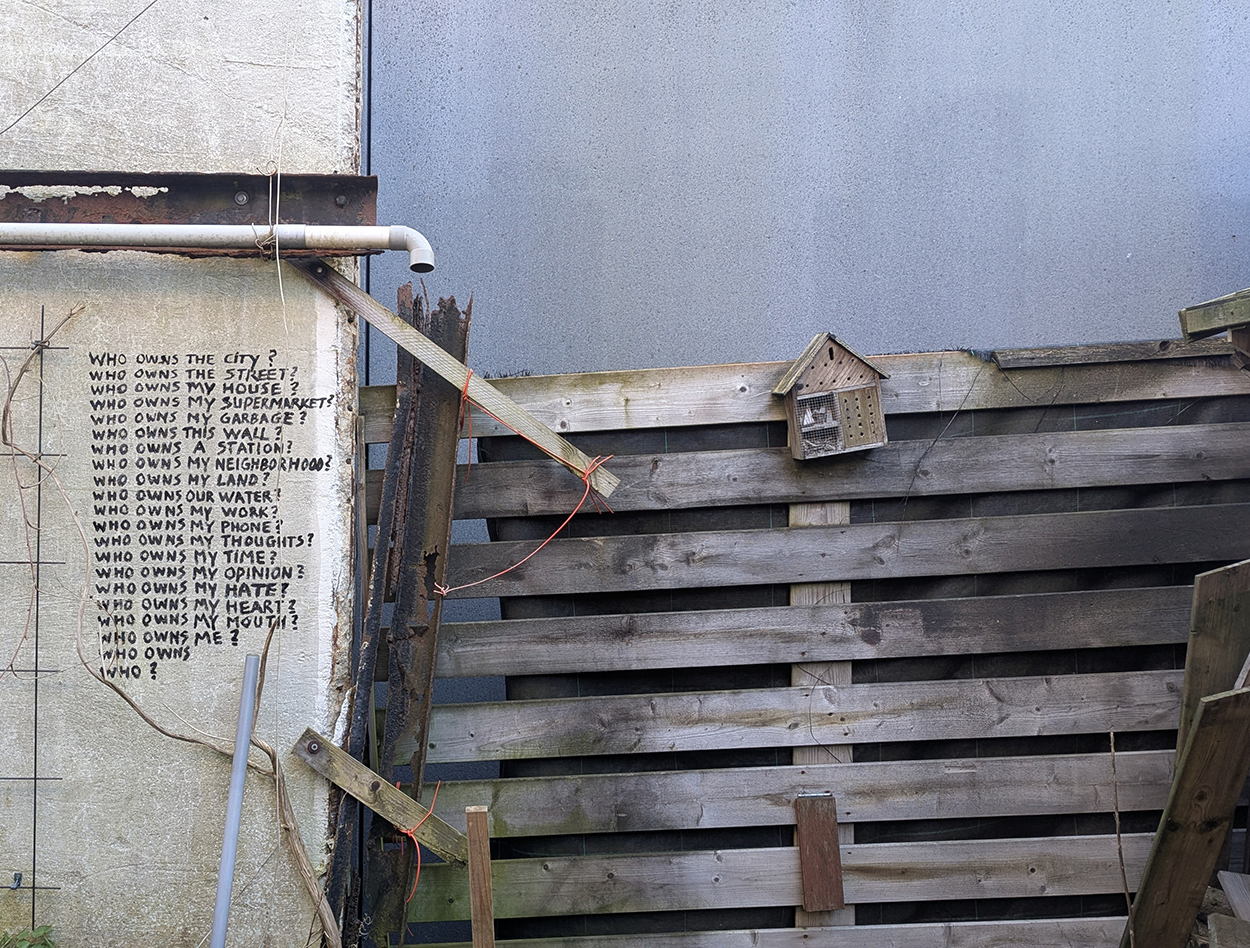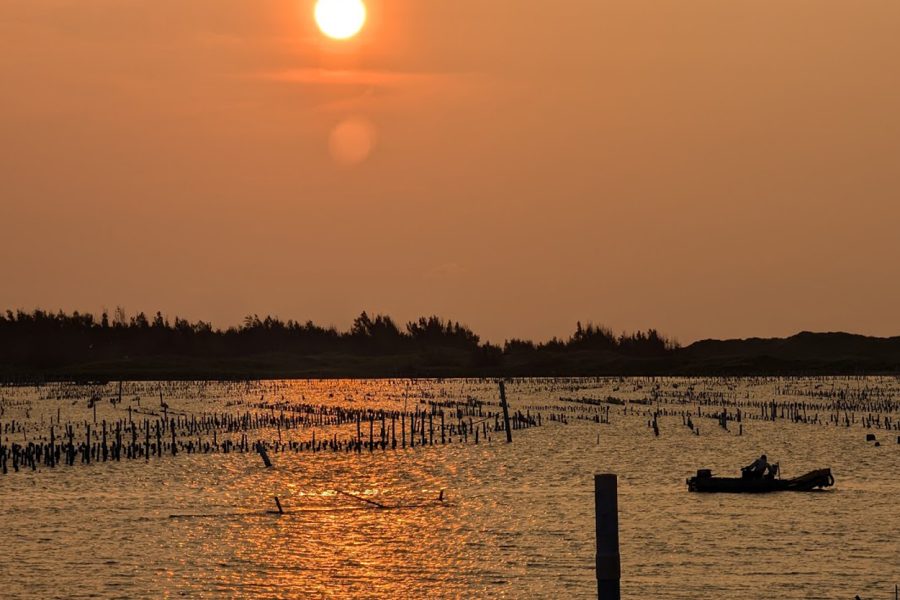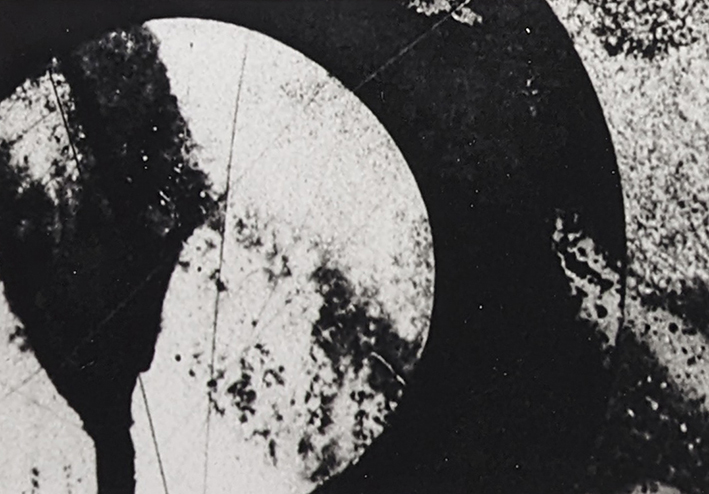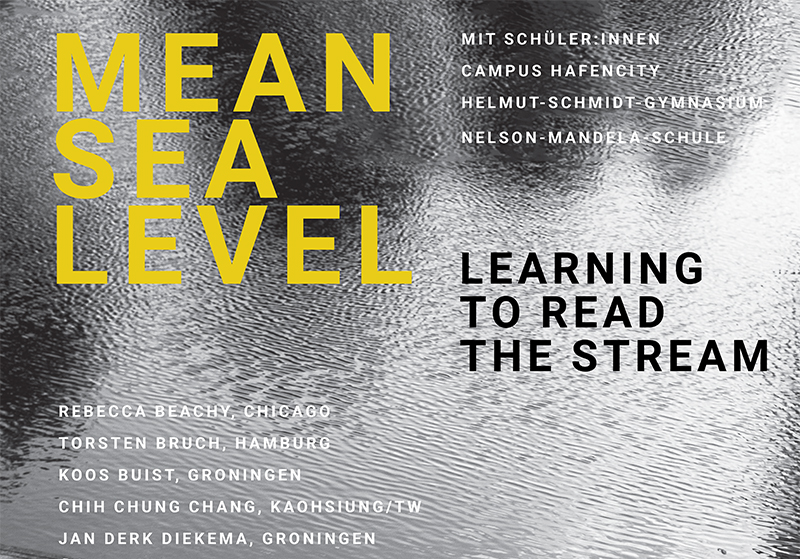A series of projects that began in the spring of 2025 with the question: Who owns the city? The question itself is difficult to answer and depends on the context—which city or which element within the city is being addressed? Culture, or who answers the question, also plays a role. My attempts to grasp the question and answer have resulted in several projects, in various cities and countries. Each project shows a different way to get to grips with the subject. In 2026, I will present an overview of the projects in an attempt to actually answer the question in collaboration with HyCP in Hamburg.
Subprojects:
Mural poster – Artoff Hamburg – Hamburg (DE)
From the doorway of HyCP in Veddel Hamburg, I observed the surroundings and the people. It struck me that everything in the streetscape belongs to someone; even the trees and the supermarket, the paving stones and the air raid siren, or the windows in the apartment across the street. But who actually owns all these elements in the city? Who actually owns our own things, is it us?
I first turned the questions into a text that I painted on someone’s wall. A photo of it was printed on a poster that was part of the Artoff Hamburg 2025 exhibition.
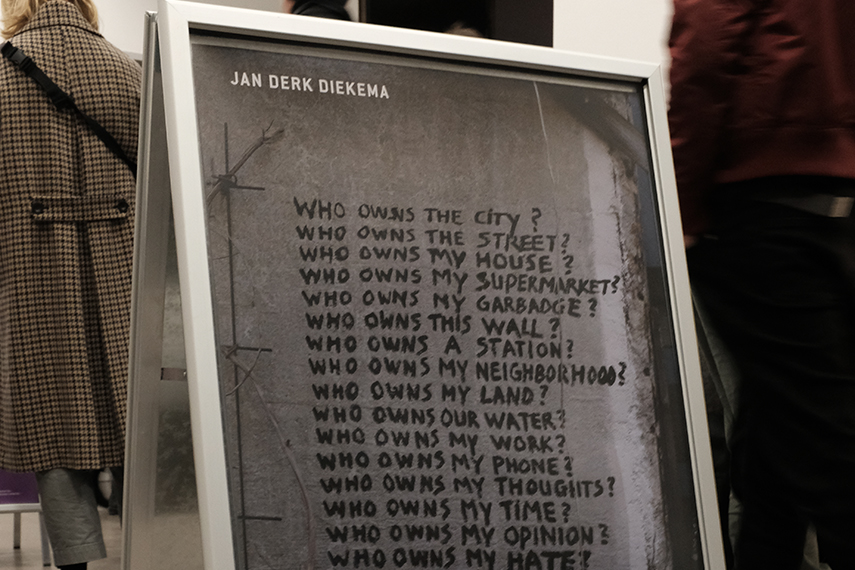
Who Owns the City: Artist Talk & Panel Discussion – Athens, Georgia (USA)
In collaboration with University of Georgia (UGA), this event was organized in Art institute ATHICA. I shared some of my projects and invited the public; artists, students and local experts for a discussion to explore the ideas surrounding the question: who owns the city? We focussed on how bottom-up urban projects could and should work in their own living environment, for example in Athens, Georgia. The panel discussion was between me and Urban Geographer, Artist, and UGA Alum Dr. Matthew Harris. The session was moderated by UGA’s Stephen Ramos, James Enos, and Jon Vogt.
“The conversation was held on Thursday, April the 3rd, 2025, as an off-campus collaboration to bring artists, designers, and geographers together to address issues of gentrification and affordability. Diekema and Harris’ shared lessons of bottom-up and alternative development, in addition to work across international network collaborations and collective practices by engaging challenges facing concerns shared by the UGA’s Schools of Art and College of Environment + Design.”
athica.org
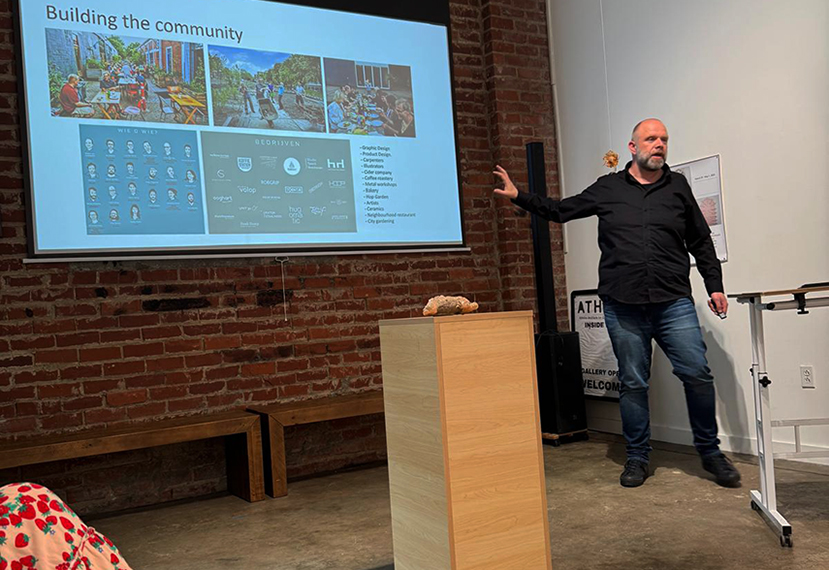
Pencil Drawing – Drink & Draw – Groningen (NL)
For Drink & Draw, the WEP edition held on June 27, 2025, at the WEP Foundation, I created a pencil drawing measuring 84.1 x 59.4 cm. I drew the same lines of text as I previously used for the mural poster. Each line represents a question stemming from the original question: Who owns the city?
While drawing each question, which took about 15 minutes per line, I focused on gaining a deeper understanding of the particular question I was drawing. I tried to grasp what I was actually asking myself while a stream of thoughts guided my pencil, translating doubt, anger, or fear onto paper.
The drawing itself was on display at the exhibition at WEP.
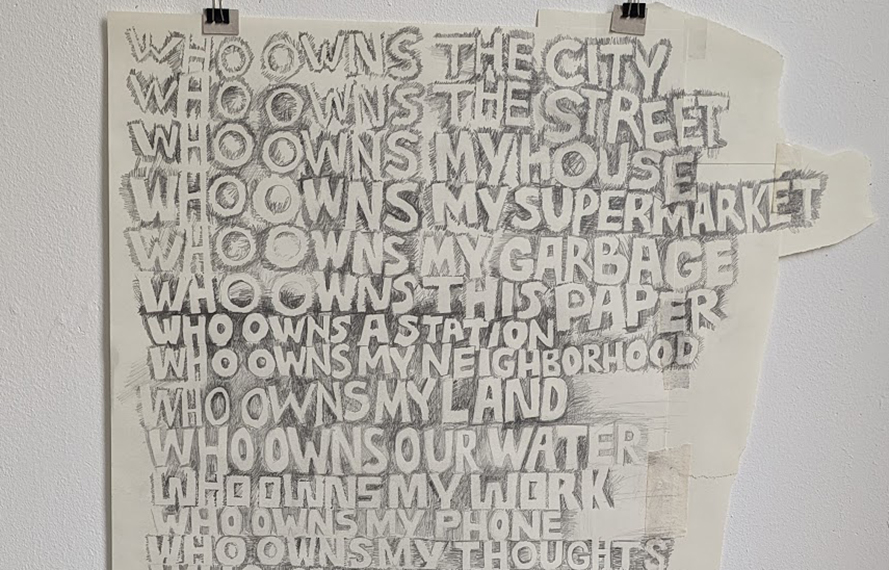
Background information
Reason to ask myself the question exists in the fields of urban research and art activism through explorations in aesthetically grounded interdisciplinary notions of geography, infrastructure and culture. My community collaborations utilize ‘bottom up’ forms of urban planning and implementation that lend vacant spaces temporary life.
I initiated and developed multiple cooperative living and artist housing projects.
In these projects, the building or ground is the starting point, its lay-out, condition and neighbourhood decide how it can be developed. This approach results in a mini-societies; affordable cooperate living, mixed with creative organizations, artist-studios and businesses that interact with the neighbourhood.
Temporary social and creative breeding grounds arise instead of leaving places empty, this is where I feel that I ‘make’ the city, not as a traditional designer or developer but as participatory programmer working with community and disused parts of the city. Each step in the process forces me to ask myself constantly questions like: is this legal, who is responsible, can we do this and if not, why not? All these thoughts come together in the parent question: Who owns the city?
